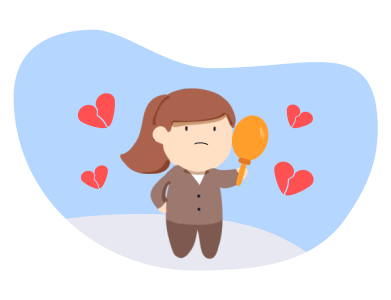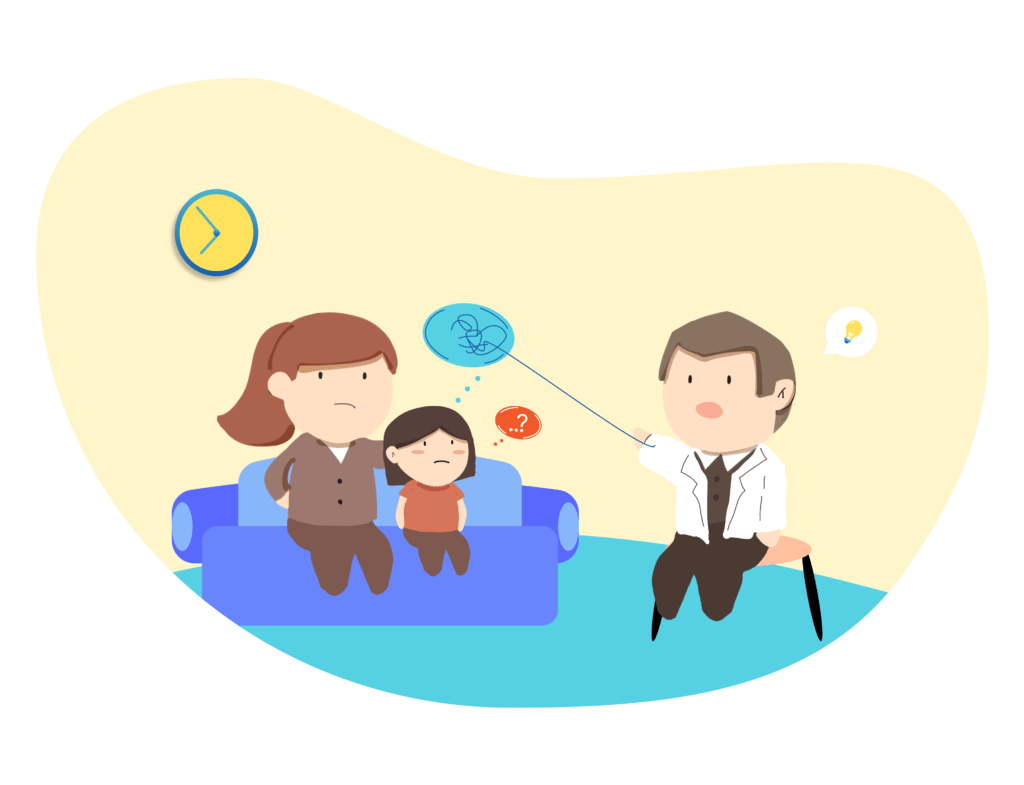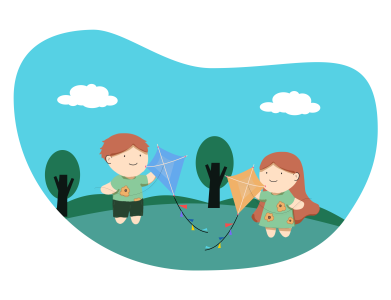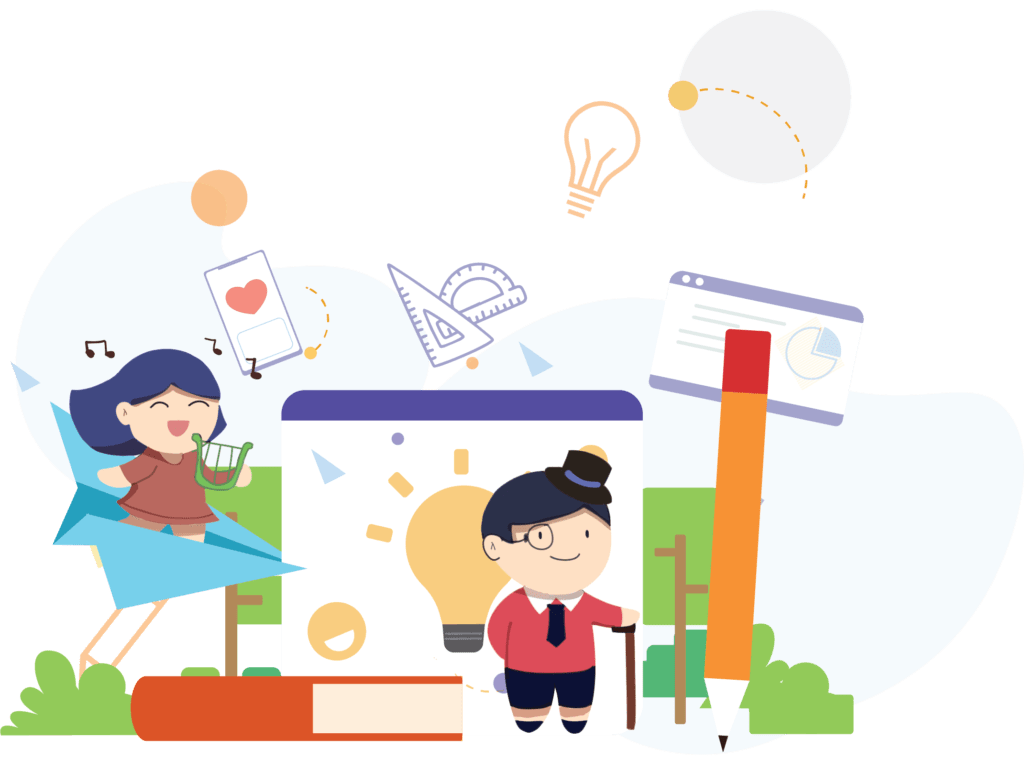
- GRIP Learning's Team
You may encourage your child to work on their own self-esteem and confidence by providing them with stimulating activities...
Discover more about the state of children’s mental health, such as childhood mental conditions, medications, and prevention.
Having a healthy mind means being in good emotional, psychological, and social shape. The way we think, feel, and act is all influenced. It also plays a role in determining how we respond to stress, interact socially, and make decisions. Maintaining one’s mental health is important at any age, from early childhood to adulthood.
The ability to acquire healthy social skills and problem-solving strategies, as well as reach important emotional and developmental milestones, are all essential for a happy and successful childhood and adulthood. All aspects of a child’s life—at home, in the classroom, and in the community—benefit when they are mentally well.
Good mental health entails more than the absence of mental illness. Children without a mental condition may have different levels of success, and children with the same mental disorder may have different levels of success in terms of development, coping, and quality of life, even among themselves. Taking a broader picture of children’s mental health and also looking for specific mental diseases are both helpful.

Some of the most common childhood mental conditions are attention deficit hyperactivity disorder (ADHD), anxiety (fears or worries), and behavior problems.
Anxiety disorder is diagnosed when a kid either does not grow out of the normal childhood worries and fears or when there are so many worries that they cause significant disruption to the child’s daily life at home, at school, or at play. Various forms of anxiety disorders include:
Anxiety can cause a variety of negative emotions in children, including, but not limited to, anger and irritability. Trouble sleeping and other physical symptoms, including exhaustion, headaches, and stomachaches, are common among those suffering from anxiety. It may be difficult to recognize the symptoms of anxiety in children who choose to keep their issues to themselves.
Every child experiences sadness and despair at some point in their childhood. Yet some young people experience sadness or a loss of interest in activities they once enjoyed, or a sense of helplessness or hopelessness in the face of circumstances over which they have no control. Depression can be identified in children when they experience persistent sadness and hopelessness.
Some of the symptoms typically displayed by depressed children are:
If a child is extremely down, they may start thinking about or making plans for suicide. Suicide ranks high on the list of causes of death for young people (10–24 years old).
Some kids might not show signs of sadness or express their feelings of hopelessness. It’s possible for a child’s depression to manifest itself externally as disruptive or unmotivated behavior, leading others to ignore the signs of depression or give the wrong labels.
Consult your child’s primary care physician or a mental health professional to discuss scheduling an evaluation as the first step in getting your child help. Children’s anxiety and depression symptoms may share some common ground with those of other disorders, such as trauma.
An accurate diagnosis and effective treatment plan require a thorough evaluation. Medication is a possible therapeutic option. However, choosing this option should be discussed with a doctor. A licensed mental health professional will be able to design a treatment plan that will work best for the child and their loved ones.
For children and adolescents 12 and older who are suffering from anxiety or depression, one kind of treatment is cognitive-behavioral therapy. A more positive and productive mindset might help a child adjust their behavior for the better. Children who suffer from anxiety may benefit from behavior therapy, which aims to teach them to face their anxieties and overcome them.
Disputes, aggression, anger, and disobedience toward parents are common occurrences among children. Disruptive conduct in children raises red flags when it is severe, pervasive, or inconsistent with the child’s age. Many mental health professionals use the term “externalizing disorders” to describe disruptive behavioral disorders as they typically manifest in negative actions directed at others.
Oppositional Defiant Disorder (ODD) is a term given to children whose behavior is so disruptive at home, school, or in social settings that it warrants medical attention. An individual is most likely to experience the development of ODD between the ages of 8 and 12. Some studies have found that children with ODD are more likely to behave in rebellious or aggressive ways when they are in the presence of adults they are familiar with, such as family members, frequent caregivers, or teachers. Children with ODD are more likely to act out in these ways than children of the same age who are developing normally.
Some typical ODD behaviors are:
Children with conduct disorder (CD) exhibit a pervasive pattern of aggressive behavior toward others and significant rule violations at home, at school, and among peers. Any of these violations of the rules could potentially become a criminal offense, making an arrest a real possibility. Children with CD may have social issues and an increased risk of injury.
Some common CD behaviors are:
An early start on treatment is important. It is best for a child’s treatment to be tailored to the child’s unique circumstances and the family’s needs. Contacting a health professional is the initial step in beginning therapy. Getting an accurate diagnosis may require an in-depth evaluation by a mental health specialist. Problems with conduct, such as disobedience to school regulations, may be indicators of underlying learning issues that need more intensive support. The most effective treatment for young children is parent behavior therapy training, in which a therapist teaches positive techniques for enhancing the parent-child bond and responding to the child’s behavior. Combining the child’s instruction with therapy that involves the family and the school is a common and successful treatment for school-age children and adolescents.
One of the most prevalent children’s neurodevelopmental disorders is attention deficit hyperactivity disorder (ADHD). Children are typically the ones who acquire the initial diagnosis, and the condition can often continue into adulthood. Inattentiveness, impulsivity (the tendency to act without considering the likely consequences of one’s actions), and hyperactivity are all symptoms of attention-deficit hyperactivity disorder (ADHD) in children.
Children, like adults, might have attention and behavior problems. However, kids with ADHD don’t overcome their symptoms. The symptoms persist, vary in intensity, and can affect one’s life at work, at home, and with friends.
Potential symptoms for an ADHD kid include:
Treatment for ADHD is most effective when it combines behavioral treatment with medication. Preschoolers (ages 4 and 5) with ADHD should initially try behavior therapy, including parent training, before turning to medication. It’s possible that the optimal approach will vary from child to child and family to family. In order to ensure the best possible outcomes, effective treatment programs will incorporate regular monitoring, follow-ups, and adjustments as the patient’s condition evolves.
Having a healthy lifestyle is essential for all children, but it can be especially helpful for kids who are struggling with mental health issues like anxiety and depression, ADHD, and behavioral problems. Maintaining a healthy lifestyle can help with the control of these mental disorders’ symptoms, in addition to receiving the appropriate medication. Some beneficial practices that might be useful are as follows:
Maintaining a healthy mind is crucial to living a long and fulfilling life. In contrast to physical illnesses, mental problems tend to persist throughout a person’s life and may even become permanent. Failure to recognize and treat children with mental health issues in a timely manner can cause them significant difficulties in many aspects of their lives. Problems that arise as a result of a mental disorder in childhood may persist throughout adulthood.




